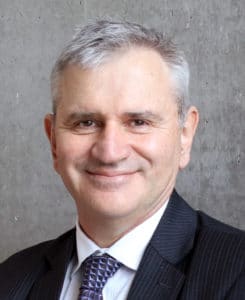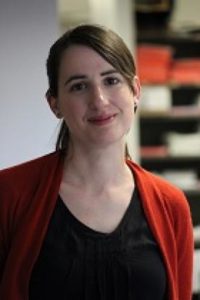Jacob Irving, Project Officer: Research and Database Management, UniSA Business, University of South Australia. Jacob has extensive experience in supporting the research activities of UniSA Business in regional policy and development.
COVID-19 has left little of our global society untouched. Whether it is through direct impacts from the health crisis, or indirect social and economic impacts, governments are struggling to maintain effective health and economic systems to mitigate the pandemic’s impacts on our communities.
Unlike many in Australia and globally today, I have been able to maintain my health and keep my job. I have fears regarding how this crisis might impact people I know – friends and family – but I am still relatively unaffected. To date, the greatest change in my life has been the shift of work to my home ‘office’.
Since the outbreak of COVID-19, I have also been lucky enough to participate in a piece of research looking at the towns in Australia that are most economically vulnerable to the effects of the pandemic.
Working in such a period in our society is not always easy. While working, it may be easy to filter out the media white noise, but as soon as one talks to their family or friends ‘coronavirus’ is the inevitable end point for all conversations. A measured approach must be taken to be both concerned, but pointed in understanding that some of us cannot do more than stay at home in a time such as now.
As a researcher, however, I have the capacity and responsibility to help bring clarity to the complex issues that face our society. So when asked to contribute towards an index to identify Australian towns most economically vulnerable to the COVID-19 pandemic, I was pleased to have another avenue in which I could help – however small the task.
Focussing on this research has come easier than focussing on any other task, as both its concerns and relevance are immediate. It is designed to address the disorder of the world around me – it is meaningful and useful.
Our research has been able to assess the towns which are economically most vulnerable and resilient to the pandemic using metrics of public-facing industries affected by travel restrictions as well as those with a large proportion of their workforce in temporary or part-time positions. It has made small ripples in the media and has piqued the interest of many other researchers working through COVID-19 responses.
The work is nevertheless ongoing. Because the COVID-19 pandemic is characterised by rapidly changing circumstances, pieces of research such as ours have use-by dates, and need to adapt if they are to contribute towards a meaningful dialogue. It is consequently my concern that there is a need to be firm and stubborn in our efforts to develop subsequent versions of our research if we want to assist our communities now and in the months to come.
I am eager and look forward to furthering our work as the economic effects from the pandemic also provide further challenges. I also look forward to sharing our results with governments and communities within affected regions so they may have a greater understanding of where best to allocate their finite resources. It is important to know how to come together and seek what is best for each other. I know there is personal hardship in and for each of us, and so it is up to everyone to contribute proportionately to their capacity and give where they can. We are all affected by this and no place can be truly resilient to the immediate and long-lasting effects of COVID-19.
For further information on the pandemic vulnerability index, see our research and updates here.
Research Team

Professor Andrew Beer, Executive Dean, UniSA Business, University of South Australia. Dr. Beer is one of the most widely cited researchers in the nation on issues related to regional development, housing, and other issues.

Dr. Anthea Bill, Lead Economist, Hunter Foundation Research Center, University of Newcastle. he has over 15 years qualitative and quantitative research experience working in academic, commercial consultancy and government contexts and is responsible for delivering the Centre’s economic indicators program in the Hunter and Upper Hunter.
Professor Will Rifkin: Director, Hunter Foundation Research Center, University of Newcastle. Dr. Rifkin has worked to improve communication between technical and nontechnical people for more than 20 years. Prof. Rifkin describes his specialty as decision-making and creating or navigating change in organisations, arenas, and regions.
Professor Terry Clower, Director, Center for Regional Analysis, George Mason University (USA). Dr. Clower is an internationally recognized expert in economic development. He has studied the industrial structure of Australia’s regional cities for more than 20 years.
Are you currently involved with regional research, policy, and development, and want to elaborate your ideas in a different medium? The Regional Studies Association is now accepting articles for their online blog. For more information, contact the Blog Editor at RSABlog@regionalstudies.org.